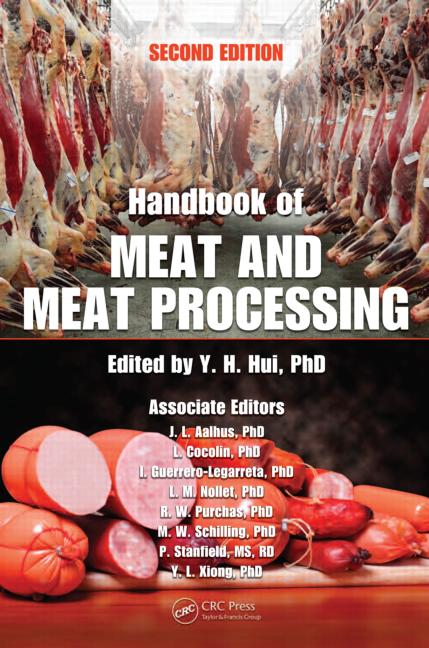Growth Opportunities | Cured Meats
Advantages of competition
Testing your products in a cured meats competition could turn into an invaluable learning experience.






Cured meat competitions occur in regions, states, nationwide and internationally. Many competitions are seeing entries rise. But why would a processor want to go to the trouble of entering a product he or she believes is perfect in a competition? Well for starters, a processor could understand their product better and learn ways to potentially improve it.
Jeff Sindelar, extension meat specialist at the University of Wisconsin-Madison and a technical advisor for the American Cured Meat Championships (ACMC), believes the primary reason to enter competitions is to have a product critically evaluated by a judge.
“In doing so, it offers a significant opportunity for research and development types of activities related to that particular product that’s entered in the competition,” he says. “It also allows an entrant to gauge how their product compares with other similar products.”
For example, entering one of 20 hams exhibited in a class, a processor could very readily compare and evaluate one’s product in terms of acceptability, quality, visual, external, color, flavor, aroma and other important quality attributes.
“By having your product entered into a competition where it’s being judged against other products, you can see how a judge critically evaluates your product, critically evaluates other products in the class and then have a chance to see critical evaluations of a number of different products in relationship to that particular product,” Sindelar says.
The one thing that a processor needs to remember about the evaluation is that as long as one’s product is selling and if the processor is not having any problems from that perspective, then a processor doesn’t necessarily have to change anything for that product, Sindelar says.
Learning from Competition
Greg Endres of Greg’s Meat Processing, Hampton, Minn., agrees that cured meat competitions allow entrants to see how everyone else is doing, compare products and talk with judges.
“Most judges will give you tips on what makes a better product, whether it is your grinding, your smoking, you’re too lean or you’re drying it too much,” he says. “There is so much information to learn.”
From when Endres started, he says that he learned how to make sausage from going to shows and school. Endres explains that many years ago, he asked one of the judges why his product wasn’t scoring well. The judge then asked Endres if he could take constructive criticism, and Endres assured the judge that he could and wanted to learn. The judge then proceeded to break down his product by the categories of judging and told him what he would need to do to make a better product.
“We came back the next year, and we actually placed in that category,” Endres says. “[The judge] came up and congratulated me, and I congratulated him on being able to help me learn. He was really happy that I did as well as I did when I came back the next year. He said, ‘You were listening,’ and I said, ‘You helped me tremendously.’ These judges will help you so much on what you are doing.”
Mike Sloan, owner of Hermann Wurst House, Hermann, Mo., also feels the ability for a processor to gauge his or her products to other meat processors is invaluable. Early in his career, Sloan refused to enter meat competition because of his pride. He knew his products were good, because, after all, he made them. He read all the directions, used all the freshest meat possible and was selling some product.
“Then you observe your meat buddies entering and winning, and you think, ’Darn it. Mine is better than his,’” Sloan explains. “So you enter, and you get your butt kicked a few times. So you go back to work, and you start all over again. This kind of competition inspires you to become better.”
Once a processor becomes better and starts winning, the competition keeps a processor focused.
“Are you being consistent? Is your quality still there? Is your new staff responding to your instructions?” Sloan asks. “At a certain stage, it becomes a training tool for your staff.”
Sloan encourages processors not to get discourage or give up. For example, one year, his snack sticks came in last at the ACMC competitions. It also happened to be the year the judging was taped and viewed by American Association of Meat Processors’ convention attendees at one of the sessions. When the snack stick category came on the screen for review by all the attendees, the narrator explained what to look for in a good example and bad example with Sloan’s snack stick used as the bad example.
“I knew the entire room was almost dark, but it sure felt like the whole room had a spotlight on me,” he says. “So on the long, long, long drive home, I was determined to do better next year. I literally threw out everything I knew and started over with that snack stick category. Next year, I won National Grand Champion for snack sticks at the ACMC. It was very rewarding to go from last to first the next year.”
Promotion Advantages
Endres, who has won more than 300 awards on the state and national level, has found doing all types of cured meat competitions helpful. For example, he believes the Minnesota State Fair competition he participates in offers incredible advertising potential.
“For the state fair one, people seem to take more notice of that than they do winning the national, because your average customer can associate with a state fair award more than they can with a national award,” Endres says.
Still, when Greg’s Meat Processing won the National Grand Champion beef jerky award, the company’s sales went up 800 percent, because it was able to advertise the award. In 2013, Greg’s Meat Processing also won the Best of Show on summer sausage.
“It’s our fifth time for National Grand Champion, so our customers already knew it was good, but new people walking into the store will look at it and says, ‘Wow,’ Endres says. “We’ve been State Fair Grand Campion five years in a row on ham. We get more advertising potential out of that, then anything else we can do. You can tell people it’s good, but when they see the awards, they buy.”
Sloan also believes the marketing opportunities are huge.
“Most judges do not buy my products, so the real judges are the customers who come into my store every day, and I ask those folks to sample and taste test my products to see if the other judges got it right,” Sloan says.
Competitive Mentality
While the road to winning may be a long process, the best tip is to not give up, but instead develop the mentality that ways to improve exist, Sindelar says.
“The entrant controls everything — all the way until that product is turned in at the registration that morning,” he says. “So they should think of when they have control of that product, how they can control, what they control and make sure that they are doing all that they can to make sure that the product is in the best shape possible, so they can do the best in the competition itself.”
Sindelar gives the example, that if a processor goes through all the effort to select raw materials, carefully trim the product and prepare the product for entry and then puts it into a cooler and stacks stuff on top of it, the product could get deformed or smashed. The processor has not helped that product do its best for competition.
Another tip that is very important is to take advantage of viewing time.
“That’s a wonderful opportunity for fellow processors to communicate and ask questions about how they have done things or perhaps if they are willing to share a tip or a trick or two and really to just see how different products are exhibited,” Sindelar says. “They can then try to understand or figure out how to implement some of those things into their own preparation for competitions.”
“The best tip I can give is to enter, get your butt kicked a few times, don’t give up, learn, talk to others, buy them a drink and befriend others, and you will be rewarded and use that as a marketing and motivation tool for your company,” Sloan adds.
During his career at two meat companies, Sloan has won about 400 regional, state and national awards of excellence for products including smoked meats, sausage, hams and bacon.
“After all these years of competitions, winning, losing and starting over, I still get knots in my stomach during these competitions,” he says. “I will never hit a home run in the World Series or throw a touchdown pass in the Super Bowl, but I will win some of these competitions, and that is my stage for my company.”
Looking for a reprint of this article?
From high-res PDFs to custom plaques, order your copy today!













